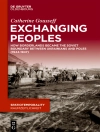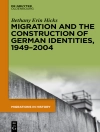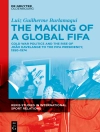Time is an obsession of the present, yet current debates seem largely unaware of its historical formation throughout the twentieth century. Given a century characterized by frequent ruptures and supersessions of competing temporal regimes, it is remarkable that time has not played a more central role in its historicisation, neither as analytical category nor thematic research subject. The nine articles in this special issue, set in Germany, England, Spain and Japan, pursue both perspectives. On the one hand they examine the conceptual role, function and importance of ›time‹ in and for the writing of history; on the other they analyse changing régimes d’historicité and the transformation of time practices empirically. Criticising established standard narratives of a global ›standardization‹ of time or its relentless ›acceleration‹, this volume rather emphasizes the pluritemporality of the twentieth century and foregrounds the historical preconditions of our digitally-driven present-day simultaneities. Thus, it explores the possibilities of the historicisation of ›time‹ as a fundamental category for thinking the twentieth century and offers a building block for a new ›time-history‹.
Om författaren
Dr. Alexander C. T. Geppert ist Associate Professor für moderne europäische Geschichte an der New York University in Shanghai und in New York City.












